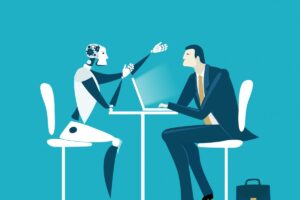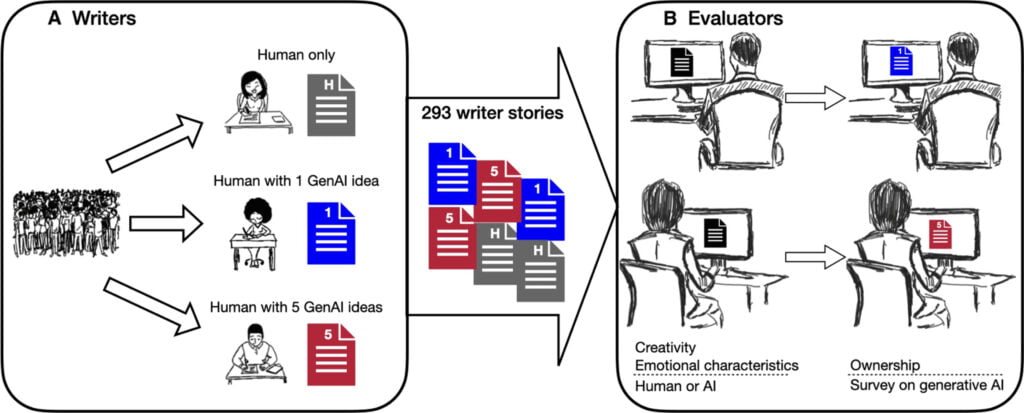ButSpeak.com
News which Matters.

A new study shows AI can improve individual creativity in writing, especially for less creative individuals, but may decrease overall originality in creative tasks.
A new study has revealed the complex impact of AI on creative tasks, highlighting that while AI can enhance individual creativity, it may also reduce overall originality. Researchers Anil Doshi from University College London and Oliver Hauser from the University of Exeter conducted the study, which was published in Science Advances. The study sought to explore whether AI could serve as an automated assistant in creative endeavors and its implications on human creativity.

Participants were asked to write very short stories, around eight sentences long, on any topic suitable for a broad audience. They were divided into three groups: one group wrote their stories without any AI assistance, the second group could consult GPT-4 for a single story idea, and the third group could receive up to five AI-generated story starters. After writing, the stories were evaluated for novelty, usefulness, and emotional enjoyment by both the writers and an independent group unaware of the AI assistance.
Before writing, participants completed a word-production task to gauge their creativity levels, a common method in academic research. The results showed that individuals with lower creativity metrics significantly improved their story ratings when using AI-generated ideas. These participants, who typically struggled with creativity, produced higher-quality, more enjoyable, and novel stories with the help of AI.
However, for participants with higher creativity metrics, AI assistance did not provide the same benefits. In fact, their story ratings either remained unchanged or slightly decreased, indicating that these individuals produced their best work independently. The findings suggest that highly creative individuals may not benefit from AI assistance and may even find it hindering.
The study also found that AI-assisted stories were more similar to each other, reducing collective novelty. Researchers used OpenAI’s embeddings API to analyze the similarity of the stories within each group, discovering a 9% to 10% increase in similarity among AI-assisted stories. This trend poses a risk to the diversity of creative outputs. While AI can enhance individual creativity, it might reduce the overall uniqueness of creative works.
Hauser and Doshi emphasized the importance of rigorously evaluating AI’s impact on creativity rather than implementing it widely under the assumption of positive outcomes. They acknowledged that their study is an early exploration of this complex issue and called for further research to understand AI’s implications in real-world settings.
“There are a number of paths that we expect future research to pick up on. For instance, implementation of generative AI ‘in the wild’ will look very different than our controlled setting,” Hauser explained. “Ideally, our study helps guide both the technology and how we interact with it to ensure continued diversity of creative ideas, whether it is in writing, art, or music.”
The study underscores the need for careful consideration of how AI tools are integrated into creative processes. While AI can provide valuable assistance to those struggling with creativity, its broader impact on the uniqueness and diversity of creative works warrants caution. As AI continues to infiltrate various creative fields, understanding its limitations and potential drawbacks is crucial to preserving the richness of human creativity.